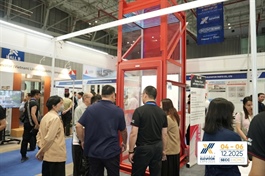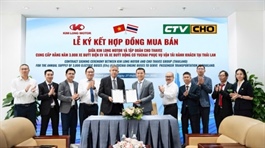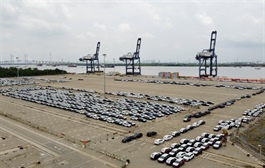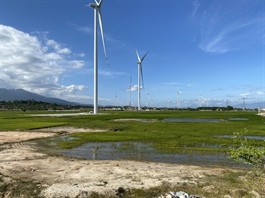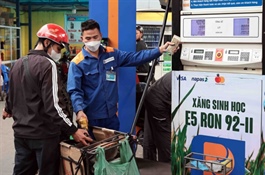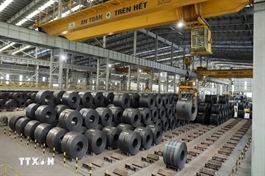E-vehicle manufacturers take on battery segment
E-vehicle manufacturers take on battery segment
Electric vehicle manufacturers are racing to partner with ride-hailing giants, aiming to turn platforms into gateways for mass electrification in Vietnam.
The partnership between Be Group and China’s BYD, announced in mid-June, signals a new phase of strategic alignment in Vietnam’s transport market.
The deal launched the BE5X Centre – a comprehensive ecosystem that bundles vehicle procurement, financing, infrastructure access, and digital integration for ride-hailing drivers. The collaboration includes Great Wall Motor (Haval), Selex Motors, and VPBank, representing a rare convergence of EV manufacturing, fintech, and platform technology.
Vo Minh Luc, CEO of BYD Auto Vietnam, stated that Be is a strategic partner to popularise electric vehicles (EVs) in Vietnam.
“BYD is constantly promoting the transition to new energy vehicles, which are more environmentally friendly and economical for users. At the same time, we are also working together to build and develop a nationwide charging station ecosystem to support customers to use EVs with peace of mind anywhere,” Luc said
Through BE5X, drivers are offered financing packages with interest rates starting at 5 per cent and loans covering up to 85 per cent of the vehicle’s value, with no income verification required. Leasing options start at around $320 per month, while direct purchase discounts can reach up to $4,000.
In the two-wheeler segment, Selex Motors provides discounted e-motorbikes and battery swapping privileges to beBike drivers, with daily or weekly repayment plans deducted from ride earnings.
Elsewhere, Grab is also deepening its regional partnership with BYD. Under a deal covering 50,000 EVs across Southeast Asia, Grab is rolling out a programme in Vietnam from May to August offering access to four BYD models priced between $28,000-52,000. Drivers can expect a guaranteed monthly income of $1,000, access to rental or financing options, and 8-year battery warranties.
While Be and Grab intensify their electrification push, Xanh SM, a Vingroup’s EV taxi subsidiary, continues to lead in market share. According to Q1 data from Mordor Intelligence, Xanh SM controls 39.85 per cent of the taxi and ride-hailing market, outperforming Grab at 35.57 per cent. Instead of aggressive subsidies, the company relies on the vertically integrated VinFast ecosystem offering consistent access to vehicles, service, and a nationwide charging network.
This EV platform convergence is not just tactical, as it reflects structural shifts in the Vietnamese market. The country has set a deadline for all urban taxis to transition to electric or green energy by 2030, turning electrification from an option into a compliance obligation. Ho Chi Minh City alone plans to transition around 400,000 service vehicles including ride-hailing cars and delivery bikes to EVs in the next several years.
Vietnam’s macro indicators further highlight the potential. According to Mordor Intelligence, the country’s EV market is projected to reach $2.93 billion by the end of 2025 and $6.69 billion by 2030, growing at a compound annual rate of 18 per cent. The growth is driven by several factors: rising consumer awareness, favourable policies, tightening emissions regulations, and a fast-growing middle class with an appetite for green, connected mobility solutions.
Battery prices have declined by over 80 per cent in the past decade globally, and localised production is further expected to reduce costs. Vietnamese manufacturers such as VinFast and Selex are actively developing domestic battery and component supply chains, which may give them a cost advantage over import-heavy competitors in the medium term.
Beyond cost, fleet operators are becoming increasingly focused on operational efficiency and brand positioning. EVs offer lower maintenance and running costs, averaging savings of $1.60-2.40 per day, according to a study by Ho Chi Minh City Institute for Development Studies.
Drivers spending around $3-4 daily on petrol can cut fuel costs by up to 70 per cent with EVs, reducing payback periods from 4–5 years for petrol cars to just 2–2.5 years for EVs.
Nonetheless, for EV makers, ride-hailing platforms remain the most promising route to scale. Unlike traditional buyers, fleet drivers generate higher mileage, faster data, and consistent visibility, allowing manufacturers to refine battery performance, build brand loyalty, and secure recurring income from service layers such as software updates, maintenance, and charging.
- 09:38 02/07/2025




